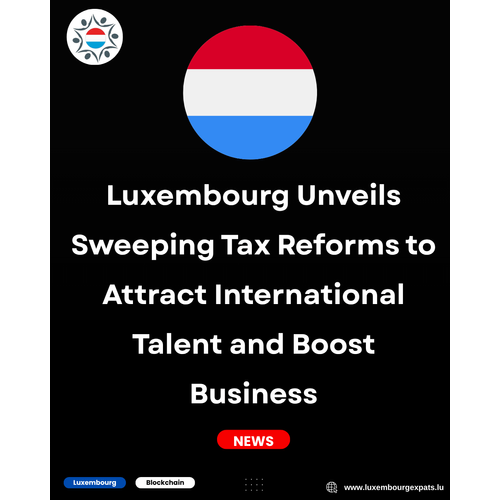Luxembourg unveils tax reforms to attract global talent and boost business
LuxembourgPosted on 19 July 2025 by TeamLuxembourg is positioning itself to win the race for global talent and investment with a fresh round of tax reforms set to take effect in 2025. The government’s changes are aimed at making life and business in this small European country more appealing for highly skilled international professionals, recent graduates, and companies seeking a competitive European base.
A New Draw for International Professionals
At the heart of the reforms is an updated “impatriate regime.” This policy allows new expatriate employees—those who haven’t lived, worked, or commuted from neighboring countries in the past five years—to enjoy a 50% income tax exemption, up to €400,000 per year. The incentive applies for as long as eight years, provided the employee spends most of their working time in Luxembourg and wasn’t hired simply to replace an ineligible worker. This creates a significant financial benefit for newcomers weighing a move to Luxembourg versus other European hotspots.
Welcoming the Next Generation
Not all the incentives are for experienced expats. Young professionals (under 30 years old when starting their first permanent job in Luxembourg) gain a tax break on bonuses—up to €5,000 a year tax-free for entry salaries, tapering as pay increases. Recognizing the high cost of city living, the government is also supporting rental affordability, allowing employers to give young workers a monthly rent allowance, with a portion exempt from tax.
Corporate Edge: Lower Taxes and Easier Compliance
Businesses see several wins as well. The headline corporate income tax rate drops a notch to 16%, cutting the overall effective rate in Luxembourg City and improving the country’s standing among its EU neighbors. Companies also benefit from simplified net wealth tax for holding and finance entities, and higher ceilings for profit-sharing bonuses—up to 30% of salary, with a firm-wide cap set to encourage broader participation. The move to mandatory electronic tax filings aims to cut red tape and streamline administration for HR and finance teams.
How the Reforms Could Play Out
Imagine a tech firm setting up European operations: with these new rules, it can recruit software engineers from abroad, ensuring half their salary up to €400,000 is tax-exempt. A recent graduate taking a first job could receive a meaningful bonus without heavy taxation, along with help covering rent. For company leadership, reduced overall tax burdens and easier compliance are strong reasons to consider Luxembourg over other European capitals.
What Companies and Professionals Should Do
Employers: Review expat compensation packages to take full advantage of the impatriate scheme and youth incentives.
HR and Finance Teams: Prepare for mandatory e-filing and ensure eligibility checks are part of onboarding practices.
Young and Highly Skilled Workers: Assess eligibility—are you new to Luxembourg, and do you meet the criteria for the new incentives? If so, Luxembourg might be your most lucrative move.
The Big Picture
The 2025 reforms are more than just tax tweaks—they are a strategic play to stem brain drain, foster innovation, and ensure long-term growth. By making it cheaper and more rewarding for professionals and businesses to call Luxembourg home, the country is fortifying its status as a top-tier destination for the world’s brightest minds and most ambitious companies.
I am your contact
Team
Chat









